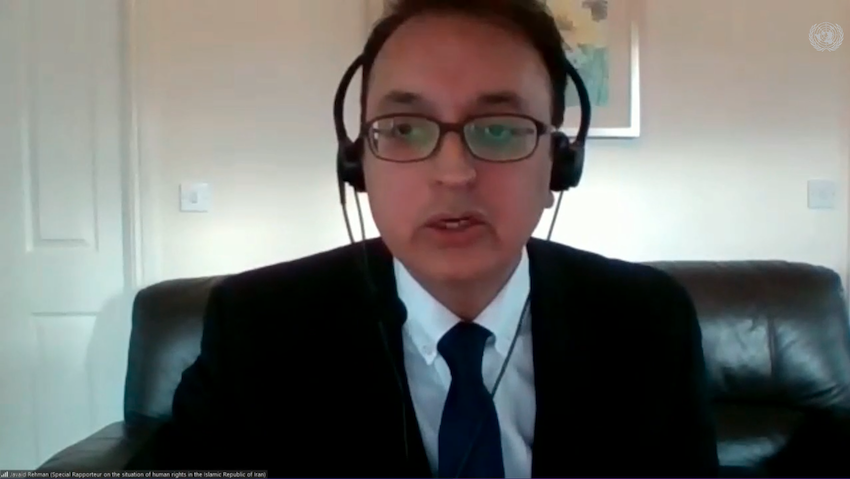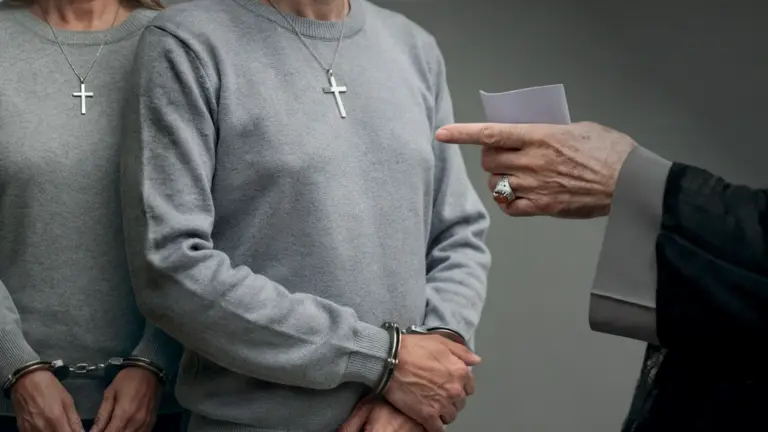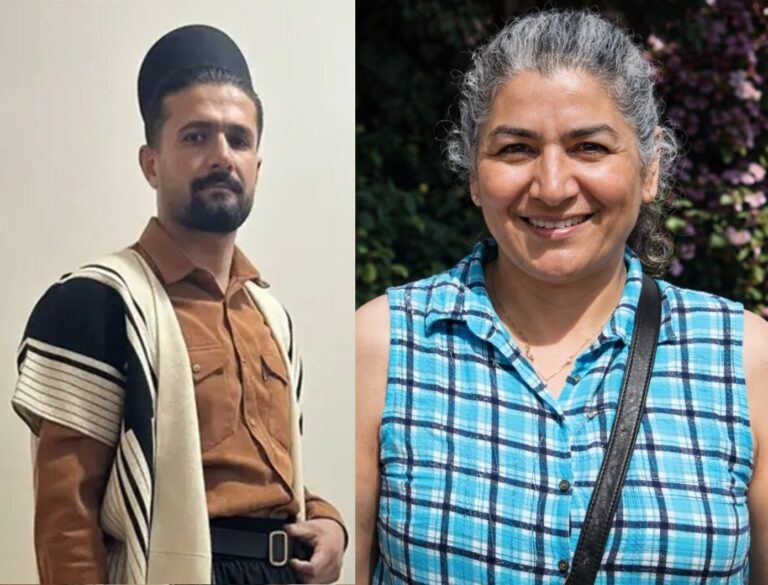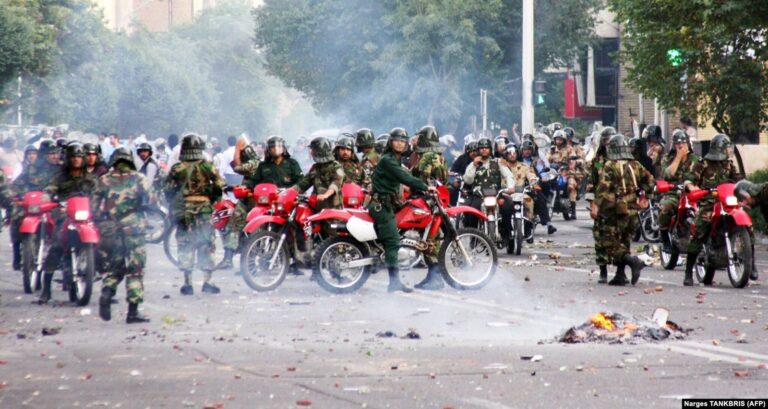
The UN special rapporteur on human rights in Iran once again highlighted the persecution of religious minorities, including Christian converts, in his latest remarks to the Human Rights Council in Geneva.
“Religious minorities, in particular the Baha’is and Christian converts, face arbitrary arrests, detentions, and ill-treatment,” Javaid Rehman said, as part of an “interactive dialogue” yesterday.
The rapporteur also highlighted several other rights violations mentioned in his most recent report, including: the imposition of the death penalty against juveniles and others who have committed no serious crime; arbitrary detention; lack of fair-trial provision; denial of access to lawyers; torture; discrimination against women and girls; the use of lethal force against protesters; and impunity for perpetrators of rights violations.
Mr Rehman was publicly thanked for his efforts by the representatives of member states including Israel, the EU, Lichtenstein, Iceland, Germany, Luxembourg, the Netherlands, Switzerland, Australia, Ireland, the USA, Belgium, the UK, New Zealand, Yemen, France, Argentina, Albania, and Macedonia.
The representatives to the UK and Israel both specifically referenced the plight of Christians in Iran.
“Persecution of religious minorities continues unabated, particularly towards Christian converts and the Bahais,” the UK’s representative said.
The persecution of religious minorities including Christians was also referenced by representatives of non-governmental organisations CSW and the British Humanist Association.
“Many Christians are either facing or currently serving excessive prison sentences on unfounded charges relating to national security, extremism and propaganda,” noted CSW’s representative.
On the other side of the debate, Iran’s representative and representatives of countries sympathetic to the Islamic Republic – China, Sri Lanka, Russia, Belarus, Zimbabwe, Nicaragua, Laos, North Korea, Cuba, Syria, and Venezuela – insisted that the rapporteur’s mandate was flawed, his efforts “politically motivated”, and his reports fallacious.
At one point, Iran’s representative personally attacked Mr Rehman, even calling into question his objectivity as a British passport holder whose mandate had been initiated by the UK.
This later called for the President of the Council to remind all participants not to make personal attacks on any individual rapporteur.
It can at times seem feel as though such dialogues are futile, given how little common ground there appears to be between those on either side of the debate. But given that the specific focus of Mr Rehman’s latest report was “accountability”, at the very least such discussions provide some opportunity for rights violators to be called to account.
Mr Rehman was forthright in his rebuttal of several criticisms brought against him by the Islamic Republic and its sympathisers.
“The government [of Iran] argues that the references of the report are politically biassed or based on information from terrorist groups,” Mr Rehman said in his concluding remarks. “This is wholly inaccurate, and in itself is an example of the way in which the government views criticisms or analysis with which they do not agree.
“I encourage the government to engage on the substance of the report, and I hope we can have a meaningful exchange towards how to strengthen human rights in responding to several states and organisations on the absence of accountability and institutional impunity.”
Responding to other criticisms, the rapporteur said: “I do not believe that the debate can proceed solely on the basis of denial…
“Violations of international human rights law have no relationship to the imposition of sanctions on Iran…
“The sovereignty of Iran is not in dispute. But sovereignty does not give a carte blanche for human rights violations, and it is not a shield against criticism of legal and political structures.”



0 Comments
Trackbacks/Pingbacks